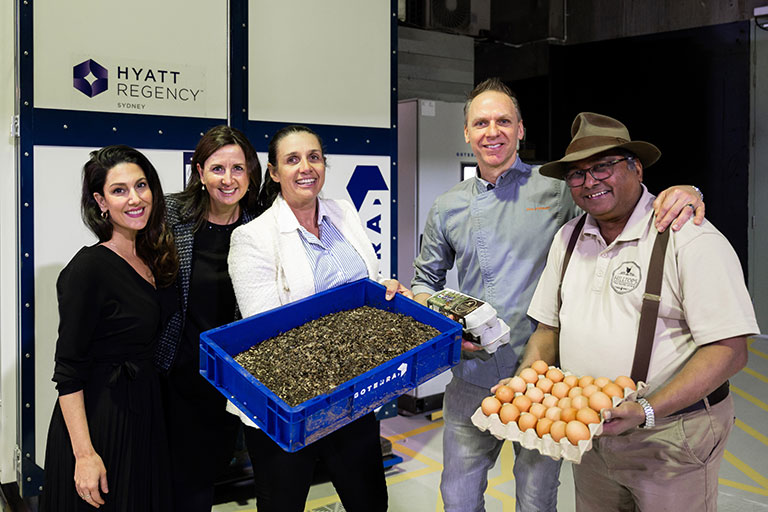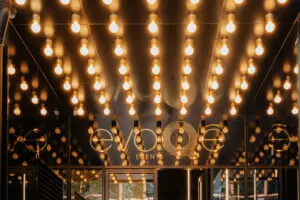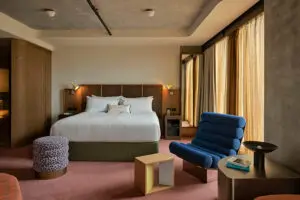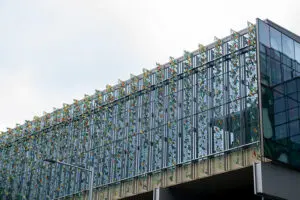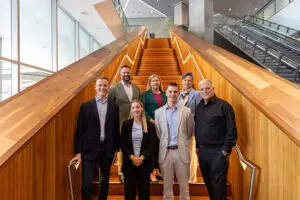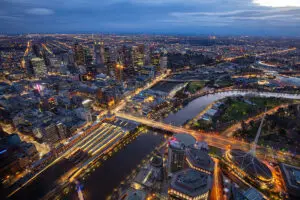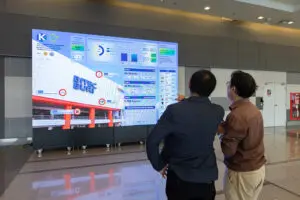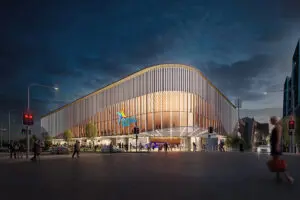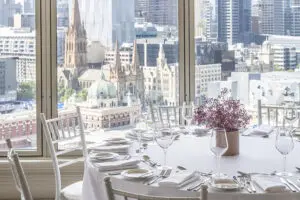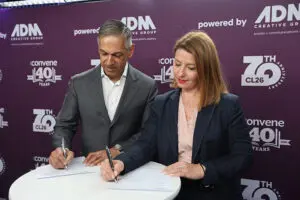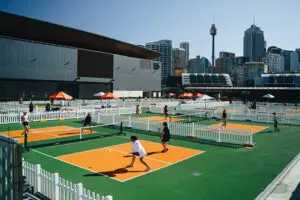The new compact system onsite uses Black Soldier fly larvae to break down large quantities of food waste, with the larvae able to reduce waste by 95 per cent in 24 hours.
The high-tech units which contain the flies have been nicknamed maggot robots as the larvae, or baby insects, are one and the same as maggots.
Once the larvae have completed the eating phase of their lives, they will be harvested for animal feed and given to Hyatt Regency’s main egg supplier, Hilltops Free Range, to be used as chicken feed.
“When you manage food waste with insects, you radically reduce the impact it has on the world,” said Goterra’s CEO Olympia Yarger, who created the system.
“Using insects in tandem with industrial robotics means we manage waste efficiently, producing a sustainable protein that can be used in agricultural supply chains, creating a truly circular system,” she said.
Jocelyn Kum, executive director at M&L Hospitality, which owns Hyatt Regency Sydney was a driving force behind bringing the system into the hotel.
“Our partnership with Goterra underscores our commitment to sustainability and environmental responsibility,” she said.
“We are proud to lead the way in sustainable food waste management in the hospitality industry.”
Hyatt Regency Sydney on Darling Harbour is Australia’s largest hotel with 878 rooms and 4,000m2 of event space.
“The implementation of Goterra’s innovative food waste management system represents a significant milestone in our journey to reduce our carbon footprint,” said Hyatt Regency’s general manager, Jane Lyons.
“This initiative aligns perfectly with our ongoing efforts to consider sustainability in all aspects of our operations.”




